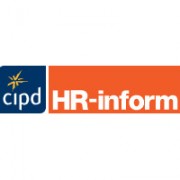‘Fit for work’ website and helpline goes ‘live’
‘Fit for work’ website and helpline goes ‘live’, prohibition on forced subject access requests is delayed, and no appeal yet on holiday pay overtime case
Fit for work
Assessment and advice service aimed at speeding ‘return to work’ for employees on long-term sick leave begins this month
The government is beginning to implement its new health assessment service, ‘Fit for work’. Previously known as the Health and Work Assessment and Advisory Service, the scheme stems from recommendations in the government commissioned report in to long-term sickness absence by Dame Carol Black and David Frost in 2011. This called for an independent assessment mechanism triggered when employees on sick leave had been absent from work for around 4-6 weeks, after which time statistics indicate the likelihood of them returning to work decreases.
There will be two main elements to the service:
• health and work advice, provided through a helpline and website
• an occupational health assessment, designed to identify all the obstacles preventing the employee returning to work, culminating in a ‘return to work plan’.
The telephone and website advice service are expected to be live by mid-December. The second part of the service, consisting of telephone based ‘biopsychosocial assessments’ conducted by health professionals, looking at issues which may be preventing a return to work from sick leave, will follow later. The service is not directly linked to benefits, but individuals referred to it receive the equivalent of a Fit Note at the end of their ‘return to work plan’ which may need to be provided as evidence in an application for benefits.
The service will be delivered in England and Wales through a private provider, Health Management Ltd, and in Scotland by the Scottish government.
Adam Bailey, head of the sickness absence review team at the Department for Work and Pensions, said the scheme was a “consent-based service, designed to provide help to the individual, the employer and the GP about what things might be appropriate to help that individual get back to work.” He said the service was intended to complement and not compete with employer’s own occupational health services, and was expected to be particularly useful for small and medium sized organisations with no occupational health service. He also said his department was committed to evaluating the service appropriately in order to arrive at a “significantly in-depth understanding of the drivers of sickness absence”.
The roll-out schedule for the service is still to be finalised but is expected to be completed by May 2015. Speaking at a Westminster Employment Forum conference recently Bailey said he appreciated that employers needed to know exactly how the service would operate and that his department was aiming at putting out full information for employers at least six weeks before they would be affected. He stressed that there would not be a ‘big bang’ start and “there will be time once the information’s out there before the service really ramps up”.
The new service’s operations director, Susannah Hoskins, emphasised that Fit for work was “not an occupational health service” but a “line of support, providing impartial expert health and work advice to employees, employers and GPs”. It was aimed at giving doctors short on appointment time and experience of occupational health issues the opportunity of early intervention in to what they expected could become long-term health issues for patients. “The service is very much work focused, but it’s covering ground that might not be covered with a GP because of time or knowledge constraints,” said Hoskins.
GPs will be encouraged to make early referrals to the service; employers can only make referrals after an employee has been absent on sick leave for four weeks. There are no self-referrals. The ‘return to work plan’ will be agreed with the employee, and the service will also need users’ agreement as to who sees which parts of the plan.
The service’s implementation coincides with recently released annual figures from the Health and Safety Executive, showing that almost 46 per cent of the half a million employees who developed a new illness over the past year had an illness related to stress, depression or anxiety and that 23.5 million working days were lost to all illnesses in the year from 2013-14.
Data protection
The government’s implementation of Section 56 of the Data Protection Act 1998, expected this month, has been delayed due to an unspecified “technical issue” according to the Ministry of Justice. The department says it is working urgently to resolve the problem and “remains committed to making the practice of enforced subject access illegal”.
Section 56 makes it an offence for employers to require individuals to make data subject access requests in order to provide the employer with evidence of whether or not they have a criminal record. Employers can only ask the Disclosure and Barring service for a criminal record check where the person concerned would be working with children or vulnerable adults, or where the job requires a high level of public responsibility (for example, doctors and lawyers). Ellen Temperton, a partner at Lewis Silkin, says the implementation of the provision “could have a wide-reaching effect on the recruitment practices of many employers.”
Case round-up
The trade union Unite has said it will not appeal the Employment Appeal Tribunal’s decision in the overtime holiday pay case, Bear Scotland v Fulton. The EAT’s judgment imposed limitations on a worker’s right to bring historic claims for underpayments as a series of unlawful deductions. Glenn Hayes, employment partner at Irwin Mitchell, said the announcement was “surprising as it was widely anticipated that the union would appeal … particularly as the EAT itself conceded that this aspect of its decision was ‘arguable’.
“We now have a bit more clarity in relation to the issue of holiday pay and overtime,” he continued, “but there are still plenty of uncertainties, and other claims are likely to be raised over the coming months and years. Businesses that do not start to adjust their holiday pay calculations could face claims for underpayment of holiday pay in the employment tribunal and should consider taking action now.” The law firm notes that employers can still legitimately refuse to adjust holiday pay where overtime is purely voluntary, ad hoc or where an employee can ‘reasonably’ refuse it.








